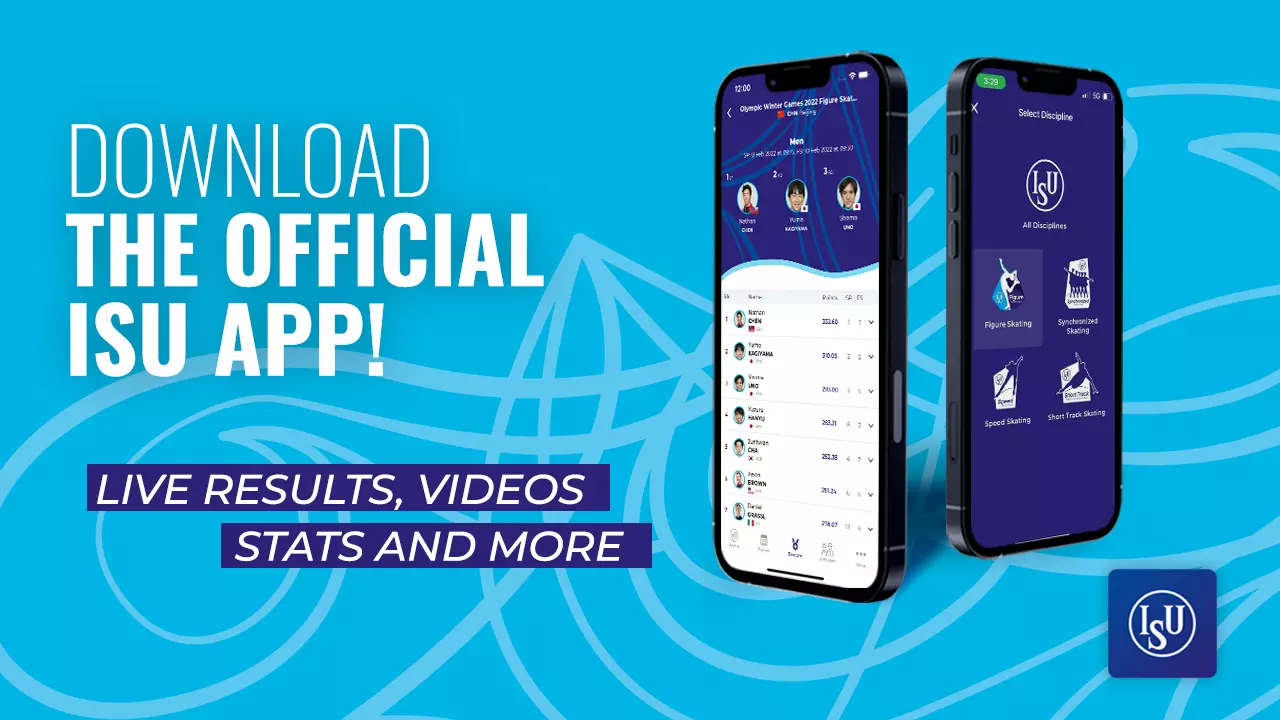
Kaetlyn Osmond (CAN) warms up during the 2017 ISU Grand Prix of Figure Skating in Grenoble (FRA) @ISU
A winter sports athlete lays the foundation for success in the summer. However, with all the intense training and ongoing preparation for the season ahead, it is also important to balance with physical and mental recovery routines.
“The daily recover from training is obviously to eat well, which gives you new energy,”
German Pair skater Annika Hocke shares. She and partner Robert Kunkel pay attention to a healthy, well-balanced diet.
“And we have recovery pants (i.e. recovery pants with compression chambers and massage programmes) that we use every day. After that we are stretching and use the black roll (i.e. foam roller) to relax our muscles and prepare them for the next day,” she continues.
Switzerland’s 2023 European bronze medalist Kimmy Repond, usually recovers from her training sessions by going to a wellness center with sauna, swimming pool, cold baths and massages facilities.
Australian Ice Dancer Holly Harris enjoys to relax body and mind at home, creating a comfortable atmosphere with some candle light and her cuddly dog, doing some stretching, foam rolling and recovery pants sessions to increase blood flow as well as speed up muscle repair and oxygenation.
Skaters also often recourse to cryotherapy, the use of cold chambers where ice packs or hyper-cold air is released all around the body, bringing the temperature down to as low as 300 degrees below zero, while skin temperature can get down to about 5-10 degrees depending on the machines. Only the head sticks out.
“During summer, we are trying to go to the cold chamber once a week on Fridays to start fresh into the next week,” Annika Hocke says.
“This is a super system to regenerate the muscles through cold, to boost the metabolism, to speed up all processes a little bit and to accelerate the removal of all the slag substances, which were caused by the fatigue of the muscles. As a result the muscles recover and can work better” the 2023 ISU European Pairs bronze medalist further explains.
In addition, Annika also uses electric massages machines that work as lymphatic drainage to reduce stress and fatigue, as well as water retention.
Skaters use various exercises to help their body recover and to prevent injuries. Working with a good physiotherapist is crucial. Many athletes also enjoy swimming.
“On Saturday we usually go swimming as it is very regenerative and doesn’t strain the muscles as the water takes away the weight,” Hocke points out.
Most athletes also emphasize the benefits of cooling down, stretching and meditating. The German Champion Nikita Starostin shares:
“I like to finish my routine with a few minutes of meditation. I’m focusing on myself and I like to manifest positive things into my life.”.
Canada’s two-time ISU World Synchronized Champions Les Suprêmes do some group stretching sessions but also value to “take the time to switch off from practice and talk about other things.”
Mental recovery goes hand in hand with the physical recovery. It is important to switch off the mind from time to time.
“During the week after training and studying for university, the weekend allows some distraction by going out with friends. We love going for coffee here in Italy, coffee is always such a little mental time out to enjoy,” Annika shares.
She also likes to prepare some food for the week over the weekends, like baking banana bread for example.
The recovery during competition time is a bit different as there is usually not more than one day in between Short Program and Free Skating.
“Sometimes it's not so easy to switch off your mind, but maybe it's not so bad that you don't completely shut down,” Annika says.
“I think you just try to let your body rest a little bit. Unfortunately, it's often difficult to sleep, so melatonin is often my savior, otherwise I just try to switch off, distract myself, talk a lot with Robert, whether it's about the competition or about other things. And I’m often watching some TV series, which is relatively boring, but that definitely helps.”
“Obviously, everyone needs to find their own path to mental recovery, whether it is a sports psychologist that helps you to calm down and with whom you can talk or friends. For me, when I just can calmly drink a coffee and have some sunshine, I’m almost perfectly recovered,” the German Pair Skater concludes.

.png)
